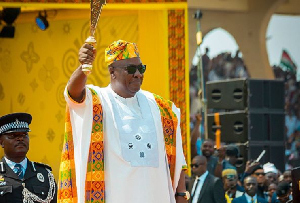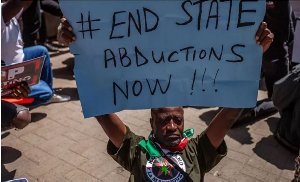The Wa Small Taxpayer Office of the Ghana Revenue Authority (GRA) in the Upper West Region missed its 2020 revenue target by 19.6 percent.
The office which comprises the Wa Municipal, as well as the Wa West, Daffiama-Bussie-Issa, Wa East and Nadowli-Kaleo District Assemblies, was able to garner GH¢10,098,570.51 last year out of a total target of GH¢12,562,128.55 representing 80.3 percent.
According to the manager for the Wa Office, Mr Samuel Adangbe, his outfit was unable to mobilise the remaining GH¢2.4 million taxes from its clients as a result of the adverse effect of the coronavirus (COVID-19) pandemic.
Speaking in an interview with the Ghanaian Times here on Tuesday, the manager stated that the office had always met or exceeded its annual targets given the employment of innovative strategies to mobilise taxes from their respective clients.
“Although most institutions revised their targets after the outbreak of the CODVID-19 in the country, based on a directive from our national commissioner, the office maintained its tax target to compel staff to deliver on their mandate, however, we were unable to achieve our target because a lot of things changed; from our style of operation to the inability of some clients to pay their taxes in the face of collapsing businesses,” he explained.
Mr Adangbe stated that due to the CODVID-19 pandemic, the office resorted to a shift system and had to reduce the number of staff at work at a time, adding that in order to limit personal contact with clients, tax audits and evaluations, as well as revenue collection, was reduced thereby, affecting the total revenue mobilised at the end of the year.
“Some businesses had their tax components revised whereas others filed lesser tax returns as a result of limited income from their business activities and most of the private schools were spared from paying taxes during the long closure of schools”, he explained.
Mr Adangbe indicated that operators of private schools within their jurisdiction notified the office about their inability to make payments, following the closure of their schools, whereas some traders went out of business due to lack of access to trade wares from their suppliers outside the region.
He indicated that such instances evidently accounted for the decrease in revenue mobilised.
“If you probe the figures we have further, you will realise that from January to March, the office achieved its monthly targets but dropped considerably from April to September when COVID-19 showed up in the country and started improving again from October to December, although we still could not achieve 100 percent,” he explained.
He stated that although the office was yet to receive its target for this year, the staff were working assiduously to ensure that enough revenue was mobilised for the month of January in order to make up for the shortage experienced last year.
Business News of Thursday, 21 January 2021
Source: ghanaiantimes.com.gh

















